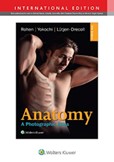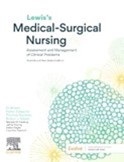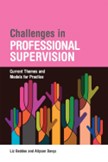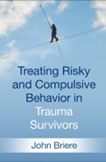@Your Library New Books
 Processing Request
Processing Request
Highlights from the Department's print book collection located at Library Catalogue Home
Staff who wish to borrow a title from this latest selection of new books should email their branch library with their contact details.
Anatomy: a Photographic Atlas, 8th Edition
by Johannes W. Rohen, Chihiro Yokochi and Elke Lütjen-Drecoll
Prepare for the dissection lab and operating room with Anatomy: A Photographic Atlas, Eighth Edition. Featuring outstanding full-color photographs of actual cadaver dissections with accompanying schematic drawings and diagnostic images, this proven text depicts anatomic structures more realistically than illustrations in traditional atlases. Chapters are organized by region in the order of a typical dissection with each chapter presenting topographical anatomical structures in a systemic manner.
Human Anatomy & Physiology, 10th Edition
by Elaine N. Marieb and Katja Hoehn
Each carefully paced chapter guides students in advancing from mastering anatomy and physiology terminology to applying knowledge in clinical scenarios, to practicing the critical thinking and problem-solving skills required for entry to nursing, allied health, and exercise science programs.
Lewis's Medical-Surgical Nursing: Assessment and Management of Clinical Problems, 6th Edition
by Robyn Aitken
Lewis’s Medical-Surgical Nursing has long been considered a comprehensive and reliable resource for nursing students preparing for their transition into clinical practice. This sixth edition has been fully updated to incorporate the latest research, data, current clinical practice, procedures and guidelines. The text addresses core skills and knowledge that students need to pass their exams and go on to provide expert clinical care. It prepares nurses to assess patients, understand underlying diseases and their signs and symptoms, and go on to plan and deliver care. The text encourages readers to develop their clinical reasoning and problem-solving skills in order to apply theory to their work.
New to this edition: updated chapters on the deteriorating patient and advanced life support, new chapter on caring for individuals with intellectual disability and autism, increased focus throughout on culturally safe care that aims to improve access to services and improved health outcomes for Maori, Aboriginal and Torres Strait Islander people, focus on the impact of COVID-19, enhanced content on gender equity, mental health, intellectual disability and autism, harm minimisation for people experiencing the effects of alcohol and other drugs, patient safety and nurses’ wellbeing and safety at work.
Challenges in Professional Supervision: Current Themes and Models for Practice
by Liz Beddoe and Allyson Davys
Challenges in Professional Supervision draws on the latest research and theory to explore issues, trends and developments in supervision work. The provision of excellent supervision is strongly linked to improved performance and staff retention. In this book, supervision is examined across a broad range of settings, addressing concerns common to a range of professions, including health, social work and counselling. The book is divided into two sections: the first describes the contemporary themes in professional supervision and the second discusses the models and skills being employed to deliver it. Issues such as supervising ethically, practitioner wellbeing and managing the process are all explored. There are also chapters on group supervision, supervision of managers and how to have difficult conversations. This book is ideal for managers and senior practitioners in health and social care with an active interest in developing, energising and inspiring their supervision practice, as well as academics interested in keeping up-to-date with developments in the field.
Treating Risky and Compulsive Behavior in Trauma Survivors
By John Briere
Treating Risky and Compulsive Behavior in Trauma Survivors provides a comprehensive treatment approach for survivors of childhood trauma who numb or avoid emotional distress by engaging in substance abuse, risky sexual activities, self-injury, suicidality, bingeing and purging, or other self-harming behaviors. John Briere shows how to help clients identify and manage the triggers of these "distress reduction behaviors," learn to regulate intrusive emotional states, and safely process trauma- and attachment-related memories. Emphasizing the therapeutic relationship, Briere's approach draws on elements of psychodynamic, interpersonal, and cognitive-behavioral therapy; mindfulness training; and dialectical behavior therapy. Treating Risky and Compulsive Behavior in Trauma Survivors combines cutting-edge clinical and experimental research with clearly described interventions, case examples, and reproducible handouts and forms.







